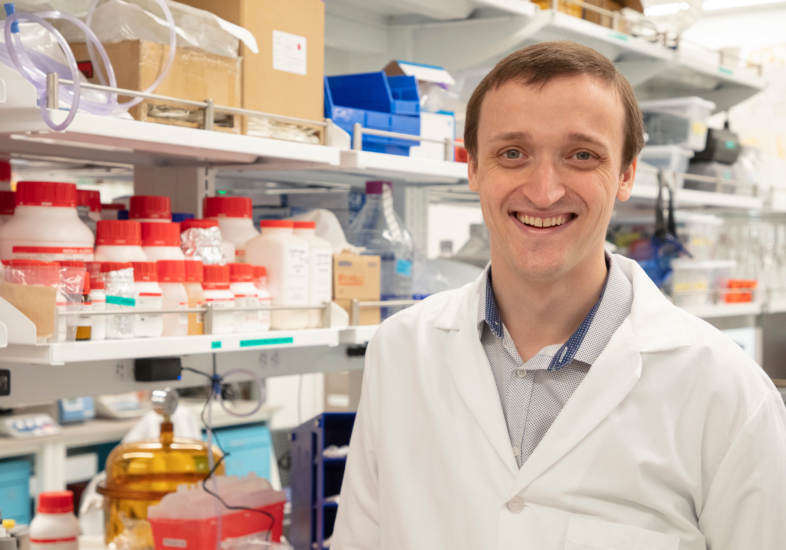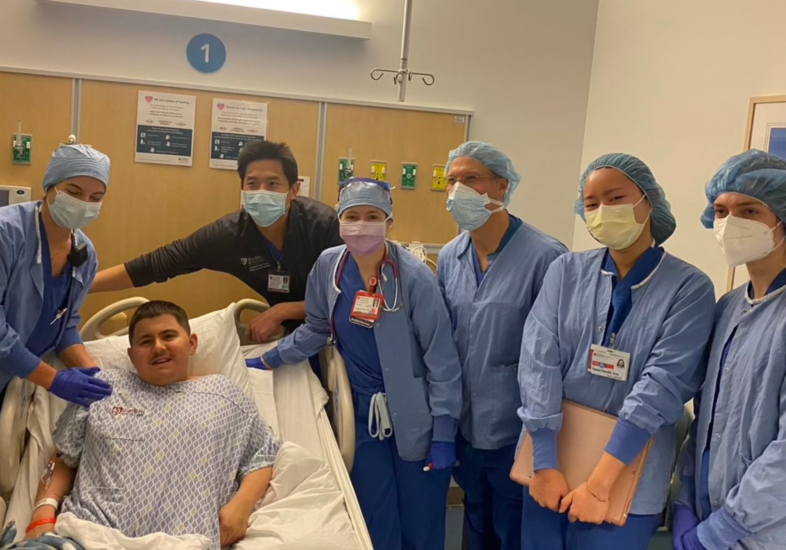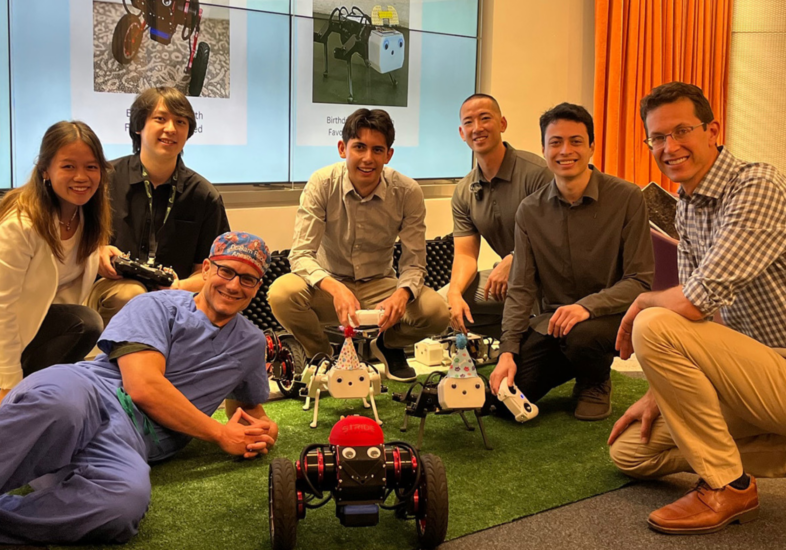Catch up on the latest news and headlines about child and maternal health, Lucile Packard Children’s Hospital Stanford, and the Stanford School of Medicine.
Helping Newborns with Fatal Kidney Diagnosis Thrive
When Abigail Beutler was born in 2013 without kidneys, her parents were told there was no hope for their daughter to survive. But Abigail arrived at 28 weeks, feisty despite her missing kidneys, and her parents turned to Lucile Packard Children’s Hospital Stanford and pediatric nephrologist Steven Alexander, MD, to tackle the next big challenge: dialysis for a newborn.
Alexander candidly told them that he had never done dialysis on a baby so small, but he and his team were willing to try. Ten years later, Abigail is living her best preteen life, challenging her brother at archery and playing with her horses, all because Packard Children’s said “yes.”
Abigail’s recovery was extraordinary, and she played a large role in the formal launch of our hospital’s NephroNICU program, which provides specialized care for fetuses and newborns with severe kidney problems.
“Today we are pushing the boundaries of conventional wisdom about how small a baby can be to receive neonatal dialysis,” says Alexis Davis, MD, a neonatologist. Our hospital now cares for a steady stream of babies like Abigail.
Mark Skylar-Scott Wins $26.3M Grant to 3D Print a Human Heart
Under a new $26.3 million federal contract from the Advanced Research Projects Agency for Health, a multidisciplinary team of researchers at Stanford University aims to bioprint a fully functioning human heart and implant it in a living pig within five years.
“It’s truly a moonshot effort, but the raw ingredients for bioprinting a complete and complex human organ are now in place for this big push,” says Mark Skylar-Scott, PhD, assistant professor of bioengineering in the Schools of Engineering and Medicine, and a member of the Basic Science and Engineering (BASE) initiative at the Betty Irene Moore Children’s Heart Center.
While he is the principal investigator on the project, Skylar-Scott insists it is the Stanford research ecosystem that makes this project possible. The full team needed to make the dream a reality includes experts in engineering, biochemistry, computer modeling, cardiology, cardiothoracic surgery, biology, and materials science. Only Stanford concentrates leadership in all these disparate but interrelated fields within walking distance of one another.
Young Man Receives the Rare Gift of Three Transplants
Joseph “Joe Joe” Sanchez-Munoz has faced some pretty steep hurdles in his life-time journey of care at Packard Children’s— a liver transplant at just 7 months of age and then a kidney transplant seven years later. Last year, a visit to the emergency department revealed heart issues, and Joe Joe started the process to prepare for his third transplant.
After his heart transplant at age 18, Joe Joe tapped into his passion for music and worked with a Packard Children’s music therapist to write, sing, and accompany an original song about his triple-transplant experience. The song, “Dancing with His New Organs,” takes listeners along his transplant journey and acknowledges his incredible care team. “No matter what life throws at him, he’s smiling,” says his mom, Elena Munoz.
Robotic Puppies Come to Play
Students from the Stanford University School of Engineering robotics team visited Packard Children’s Hospital for an epic puppy play date. The students 3D printed parts to create 30 puppies. Their robotic puppies, known as The Pupper Robots, visited patients through the Stanford Chariot Program, a pediatric immersive technology service that helps calm and distract patients during routine and complex procedures. Kids had a chance to frolic, jump, and dance with the AI-powered puppies, providing moments of delight and a sense of normalcy.
“Seeing these children come down from their patient rooms to interact with these robotic puppies brought all of us an immense amount of joy,” says Thomas Caruso, MD, PhD, pediatric anesthesiologist and co-director of the Chariot Program.
Justin Baker, MD, to Lead New Division of Quality of Life
Justin Baker, MD, FAAP, FAAHPM, has been appointed the inaugural chief of the Division of Quality of Life and Pediatric Palliative Care within the Stanford Department of Pediatrics. Baker brings a wealth of experience from his distinguished career at St. Jude Children’s Research Hospital. His groundbreaking work includes pioneering palliative care programs and community-based hospice care models.
Baker succeeds Harvey Cohen, MD, PhD, and Barbara Sourkes, PhD, who recently stepped down as the founding leaders of our hospital’s pediatric palliative care program.
Natalie Pageler, MD, Named Chief Health Informatics Officer
Natalie Pageler, MD, has been promoted to Chief Health Informatics Officer at Stanford Medicine Children’s Health and will be the first Division of Clinical Informatics chief within the Department of Pediatrics at the Stanford School of Medicine.
Pageler will be responsible for clinical and research informatics and helping to shape analytics and digital transformation for Stanford Medicine Children’s Health. She will partner with faculty and the Stanford Children’s Clinical Informatics and Information Services operational teams to harness innovative solutions and data-driven insights to transform pediatric health care.
This article originally appeared in the Fall 2023 issue of Packard Children’s News.





